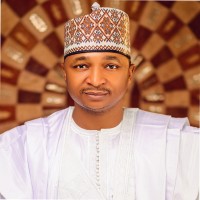Financial inclusion gaps persist despite govt interventions – CODE founder

Despite various government policies aimed at empowering women financially, significant gender gaps remain in Nigeria’s financial inclusion landscape, activist and Connected Development founder, Hamzat Lawal, has said.
Speaking during a webinar on Thursday hosted by the PUNCH Media Foundation to mark International Women’s Day 2025, Lawal noted that while Nigeria has a National Financial Inclusion Strategy targeting 80% formal financial inclusion by 2020, the framework has yet to be reviewed despite missing its target.
He stated, “Even though we are in 2025, the strategy has not yet been reviewed. The policy itself prioritises women, with initiatives like the MSME development fund, which allocates ₦220 billion, of which 60% (₦132 billion) is earmarked for women to address credit barriers. However, despite these interventions, disparities persist.”
According to Lawal, recent research shows that financial inclusion among women rose from 59.1% in 2018 to 70% in 2023. However, the gender gap between men and women has widened to about 9%, with men having a financial inclusion rate of 79%.
Highlighting economic challenges, he revealed that only 22% of Nigerian women are economically empowered, with many unable to access financial services due to barriers such as limited income, education gaps, and distrust in financial service providers.
He also pointed out cultural and societal norms that continue to limit women’s financial independence, particularly in rural areas.
“Sadly, in 2025, when a family gives birth to a girl child, she is not usually prioritised. The thinking is that she will eventually get married off, so families are reluctant to invest in her education,” he said.
Lawal further noted that while rural women have created informal savings groups such as Asusu to access financial resources, they still face challenges in digital financial adoption due to poor infrastructure and high internet costs.
“In some communities that have mobile networks and internet access, the cost is often too expensive for rural women to afford,” he stated.
Regarding government budgetary allocation for women’s economic empowerment, Lawal disclosed that the 2025 federal budget set aside ₦148 billion, a 17.7% increase from 2024. However, he pointed out that only 0.29% of the total budget was allocated for capital expenditure, limiting its impact.
“If you want to empower women, you need to invest in infrastructure. About ₦68.5 billion is allocated for grants and financial support, while ₦68 billion is directed towards health and advocacy projects. However, healthcare remains a major issue for women, particularly concerning maternal mortality,” he said.
He also highlighted structural challenges in financial access, including high interest rates and short payback periods for loans, which discourage women entrepreneurs from seeking financial support.
“There is also the issue of cultural norms that place household responsibilities on women, further limiting their ability to access financial resources. In Northern Nigeria, for instance, we still see these barriers persisting,” he added.
Despite these challenges, Lawal acknowledged some progress, particularly in the expansion of financial agent networks in rural areas.
“In 2021, data showed 631 financial agents per 100,000 adults in rural communities. Now, we are seeing initiatives such as digital subsidies aimed at reducing travel costs for financial transactions,” he noted.
However, he expressed concerns about the effectiveness of mobile wallets in Nigeria, stating, “Unlike Kenya’s M-Pesa, which does not require internet access and has transformed financial inclusion for women, Nigeria’s mobile money platforms have yet to achieve similar success. Perhaps organisations like Moneypoint or OPay should look into this model.”
Lawal also emphasised the need for better collaboration between non-governmental organisations and banks.
“There is a lack of partnerships between NGOs and financial institutions. Most banks focus on corporate social responsibility, but civil society can play a bigger role in driving financial inclusion,” he said.
The PUNCH Media Foundation webinar, themed “For All Women and Girls: Rights. Equality. Empowerment,” featured a panel of experts discussing gender rights and financial inclusion strategies.





